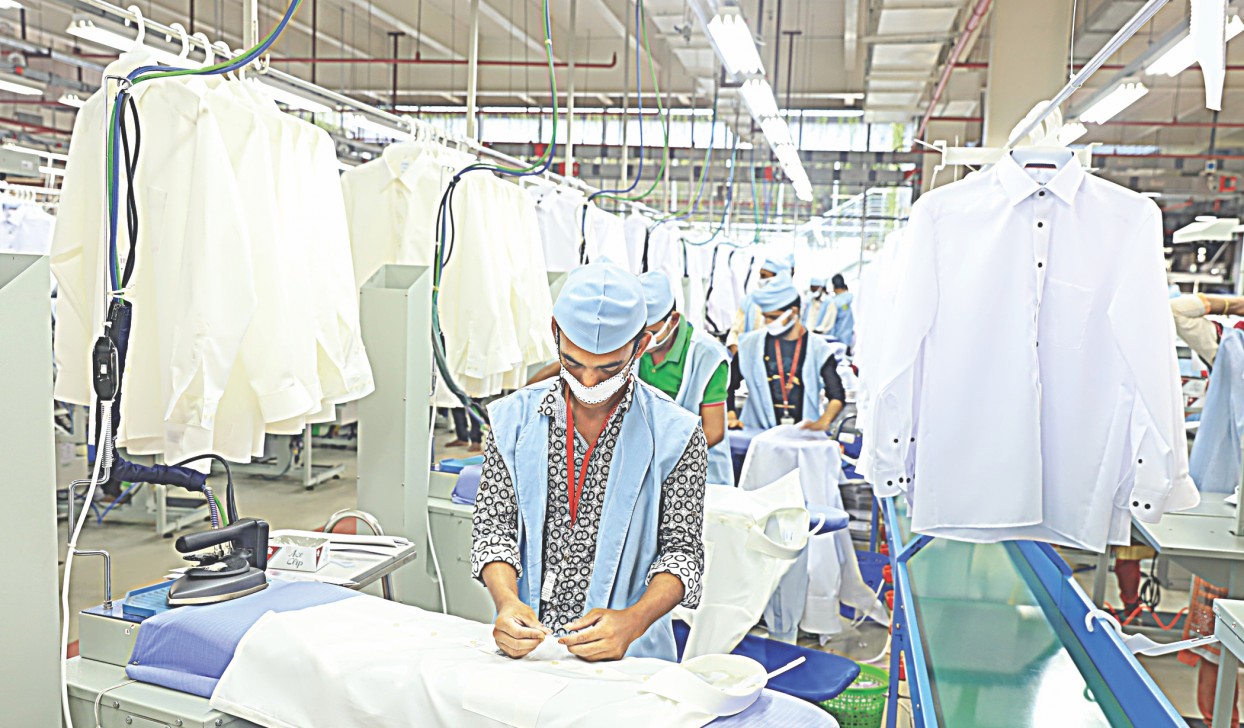Foreign brands want easy tariff rules to expand in Bangladesh

Many multinational clothing brands, which source billions of dollars of garment items from Bangladesh, have recently expressed their willingness to open their outlets in the country with a burgeoning economy.
To this end, a good number of foreign companies have contacted Bangladesh Garment Manufacturers and Exporters Association (BGMEA), said Rubana Huq, president of the trade body.
“They view Bangladesh as a very promising country.”
The rising trend in online shopping, growing disposable income of people and change in shopping pattern have encouraged the brands to enter Bangladesh, she said.
The BGMEA also plans to urge the government to make it mandatory for all global brands to source all the garment items from the local manufacturers if they want to open retail outlets here, Huq said.
However, a number of foreign retailers have recently complained that the complex local tariff structure is holding them back, she said.
“In order to sell the garments we manufacture in Bangladesh in our local stores and online shops, we are currently exporting them to our warehouses in India and then re-import them,” a foreign brand having operation in Bangladesh said in a letter to the BGMEA last week.
The French company also said it has to pay 130 per cent customs duty for many of the garments and shoes it imports, even for those made in Bangladesh.
The tariff structure and the process the company follows to remain compliant in Bangladesh are restricting it to offer a reasonable price-quality ratio and support its endeavour to protect the environment, according to the letter.
“We hope to be able to have a similar success story in Bangladesh that we already have in India.”
Over the past 10 years, the company has opened 60 big-box stores in India and over 50 per cent of the items it sells in the Indian stores are “Made in India”, it said.
“At the moment, it is not possible for us to expand retail operations and offer our customers more variety and a bigger store in Dhaka, since we cannot keep our most important promise: “good quality for very reasonable prices”,” the letter reads.
Hence, the company would like to find a way to source export garments under much better conditions.
A footwear supplier and a tent supplier of the European company located inside the export processing zone in Chattogram have already received regulatory approval to sell 10 per cent of last year’s unsold inventory to the local market, it said.
“This allows us to reduce the price of our items by approximately 50 per cent and make them accessible to more Bangladeshi sportspeople.”
The company plans to seek BGMEA’s support for research and find legal possibilities to get similar permissions for its garment suppliers.
“We would love to make our “Made in Bangladesh” items accessible to all Bangladeshis. Making local sourcing of export quality garments easier can open doors for other national and international retailers, I assume,” the letter reads quoting a representative of the brand.
In this regard, the BGMEA chief wrote to the National Board of Revenue on January 11 seeking duty-free facility for 20 per cent of the products purchased by the international retailers from the local manufacturers meant for selling to the domestic markets.
The local customers pay a high price for the branded items as the global brands lack the right to sell branded goods in their local outlets due to some policy problems, Huq said in the letter.
The duty benefit will create more jobs and the economy will be benefited greatly, she said.
The government needs to change the old policy for opening the avenues for more international clothing giants, she added.
Local customers will be immensely benefitted as they will be able to buy the items at cheaper rates and the local brands will not be affected at all if the foreign ones are given go-ahead, Huq said.
For instance, the global retailers and brands H&M, Zara and Bestseller have been doing business in India and other neighbouring countries for many years.
Even the local garment manufacturers can invest in joint venture projects with the foreign retailers and brands, she said.
Currently, some of the retailers like Puma, Uniqlo and Decathlon have been operating in Bangladesh.
The value of the annual domestic retail clothing business in Bangladesh currently stands at nearly $15 billion and it is growing at 15 percent year-on-year, according to industry insiders.
